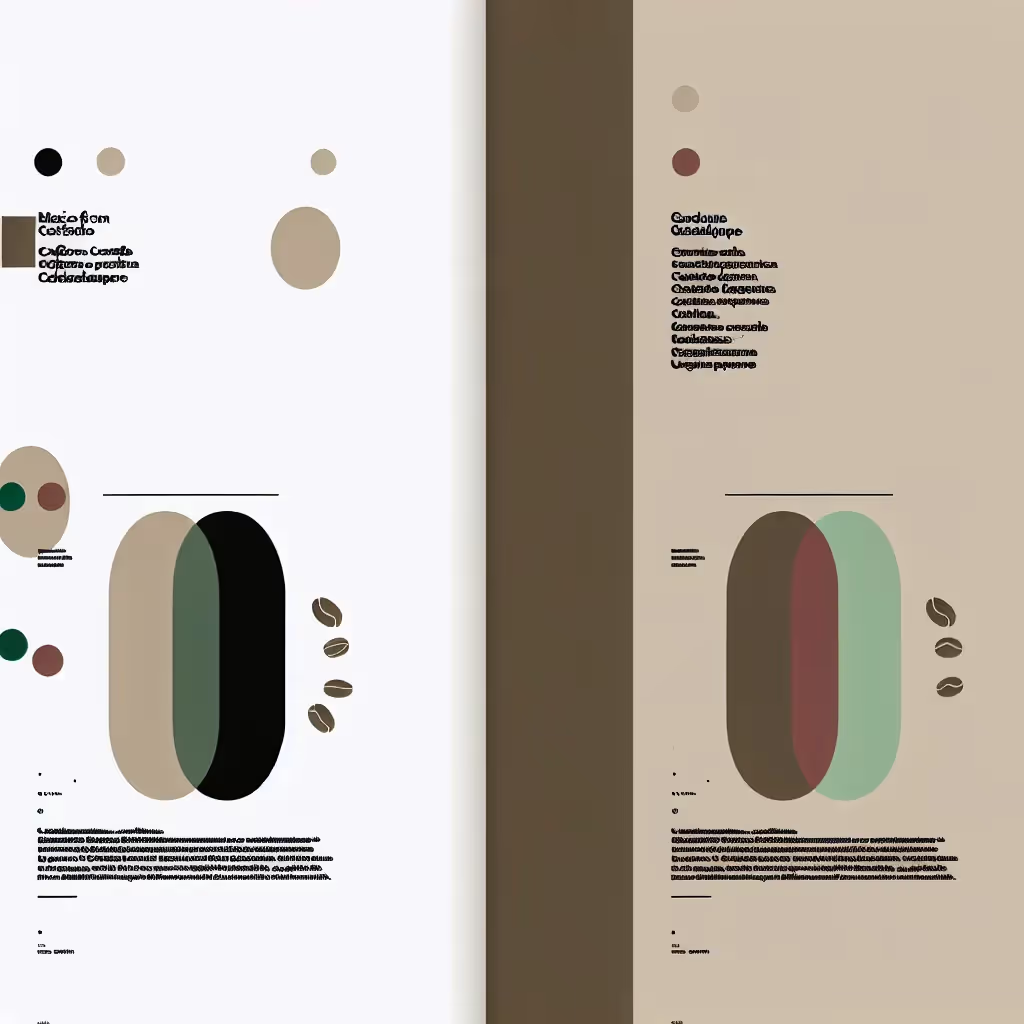Mexican Vs. Ivorian Coffee
This comparison explores the distinct qualities of Mexican and Ivorian coffee, highlighting their flavor profiles, growing conditions, and optimal brewing methods to help coffee enthusiasts make informed choices.

Brief Description
Mexican coffee is known for its light body, mild flavor, and bright acidity. Grown primarily in the southern states of Chiapas, Veracruz, and Oaxaca, Mexican coffee benefits from the region's rich volcanic soils and high altitudes. The country's coffee industry has a strong focus on organic and shade-grown practices, resulting in beans that are both environmentally friendly and full of character. Mexican coffee often exhibits nutty, chocolatey notes with a subtle fruitiness, making it a versatile and approachable choice for coffee lovers.
Ivorian coffee, predominantly Robusta, is known for its strong, bold flavor profile. Grown in the lush, tropical climate of Côte d'Ivoire, these beans contribute significantly to the country's economy. While not as internationally renowned as some other African coffees, Ivorian beans are prized for their consistency and are often used in espresso blends and instant coffee production.
Importance of Comparison
Comparing Mexican and Ivorian coffee is crucial for coffee lovers seeking to expand their palate and understand the diverse world of coffee origins. These two regions offer contrasting flavor profiles and growing conditions, providing insight into how geography and processing methods influence coffee taste. By exploring these differences, consumers can make more informed purchasing decisions and appreciate the nuances of global coffee production.
Key Attributes
Origin
Mexican
Ivorian


Consumer Guide
When choosing between Mexican and Ivorian coffee, consider your flavor preferences and brewing method. Mexican coffee, known for its light body and bright acidity, is ideal for those who enjoy a milder cup with nutty and chocolatey notes. It excels in pour-over and cold brew methods. Ivorian coffee, predominantly Robusta, offers a bolder, more intense flavor profile, making it perfect for espresso-based drinks and French press brewing. If you prefer organic options, Mexican coffee often has more certified organic choices. For those seeking a stronger caffeine kick, Ivorian Robusta beans typically contain more caffeine. Consider trying both origins to experience the full spectrum of flavors and find your perfect cup.
Expert Opinions
Coffee expert Maria Rodriguez notes, 'Mexican coffee's bright acidity and subtle fruitiness make it a favorite for single-origin pour-overs, while Ivorian Robusta's bold profile adds depth to espresso blends.' Roastmaster John Smith adds, 'The contrast between Mexican and Ivorian coffee showcases the incredible diversity in coffee. Mexican beans offer a gentle, approachable flavor, while Ivorian beans provide the punch needed for a strong espresso or instant coffee base.'
FAQs
Mexican coffee typically offers a light body with nutty, chocolatey notes and mild citrus undertones. It's known for its bright acidity and subtle fruitiness. In contrast, Ivorian coffee, primarily Robusta, presents a stronger, bolder flavor profile with earthy, nutty, and chocolatey notes. The Ivorian beans generally have a heavier body and less acidity compared to Mexican coffee.
For Mexican coffee, pour-over, drip coffee, and cold brew methods are ideal, as they highlight its delicate flavors and bright acidity. Ivorian coffee, being stronger and often used in blends, is well-suited for espresso, French press, and Moka pot brewing. These methods can extract the full-bodied flavor and intensity characteristic of Ivorian beans.
Mexican coffee benefits from high altitudes (900-1800m) and volcanic soils, contributing to its complex flavor profile. Many Mexican farms focus on organic and shade-grown practices. Ivorian coffee grows at lower altitudes (200-1000m) in a tropical climate, resulting in beans with a stronger, more robust flavor. The different growing conditions significantly influence the taste and characteristics of each origin.
Mexico produces more coffee annually, with an output of approximately 234,000 metric tons. In comparison, Côte d'Ivoire's annual production is around 100,000 metric tons. This difference in production volume reflects the larger scale of Mexico's coffee industry and its higher global recognition in the specialty coffee market.
Both origins use various processing methods, but with different emphases. Mexican coffee is commonly processed using washed, natural, and honey methods, allowing for a range of flavor profiles. Ivorian coffee typically undergoes natural, washed, or semi-washed processing. The natural process is more common in Côte d'Ivoire, contributing to the coffee's full-bodied, earthy characteristics.
Mexican coffee is generally considered better for those seeking organic or sustainably produced options. Mexico has a strong focus on organic and shade-grown coffee practices, with many farms holding organic certifications. While sustainable practices are growing in Côte d'Ivoire, organic certifications are less common, making Mexican coffee the preferred choice for environmentally conscious consumers.
Conclusion
Mexican and Ivorian coffees offer distinct experiences for coffee enthusiasts. Mexican beans shine with their light body, bright acidity, and nuanced flavors, making them ideal for those who prefer a milder, more complex cup. They excel in pour-over and cold brew methods. Ivorian coffee, with its bold, strong profile, is perfect for espresso lovers and those seeking a more intense coffee experience. It's a staple in many espresso blends and instant coffees. While Mexican coffee is often the go-to for organic and specialty options, Ivorian beans offer consistency and strength that many coffee drinkers appreciate. Ultimately, the choice between Mexican and Ivorian coffee comes down to personal taste preferences and brewing methods.






